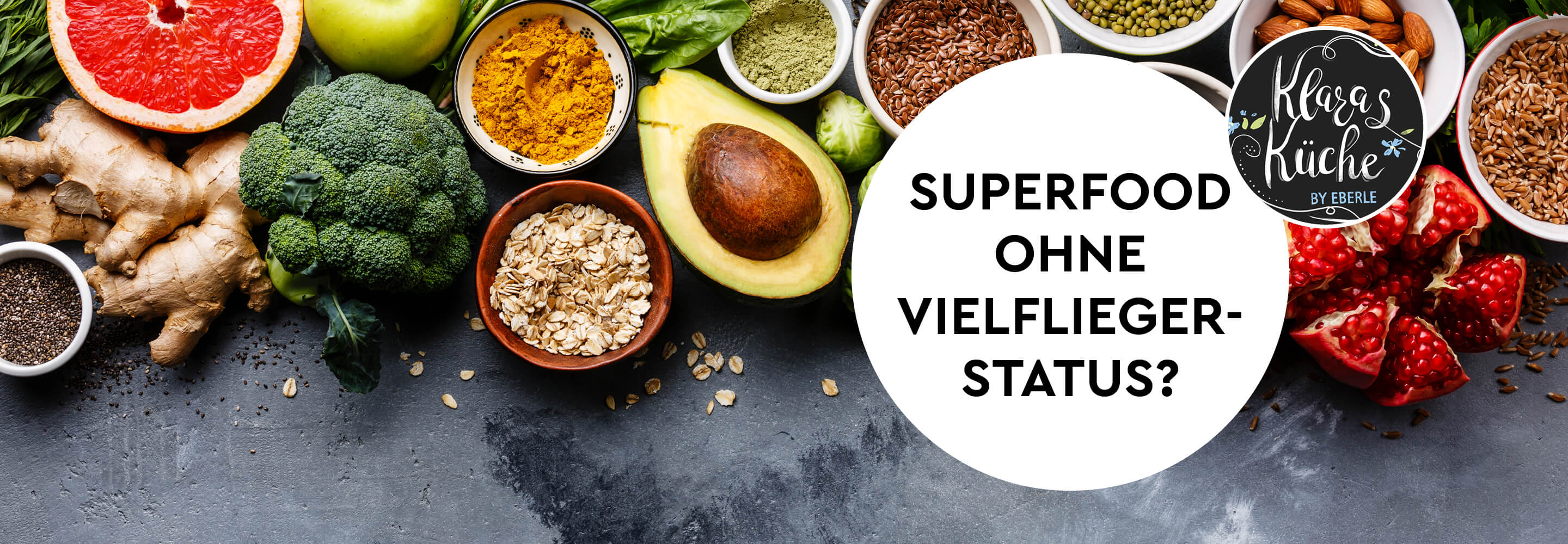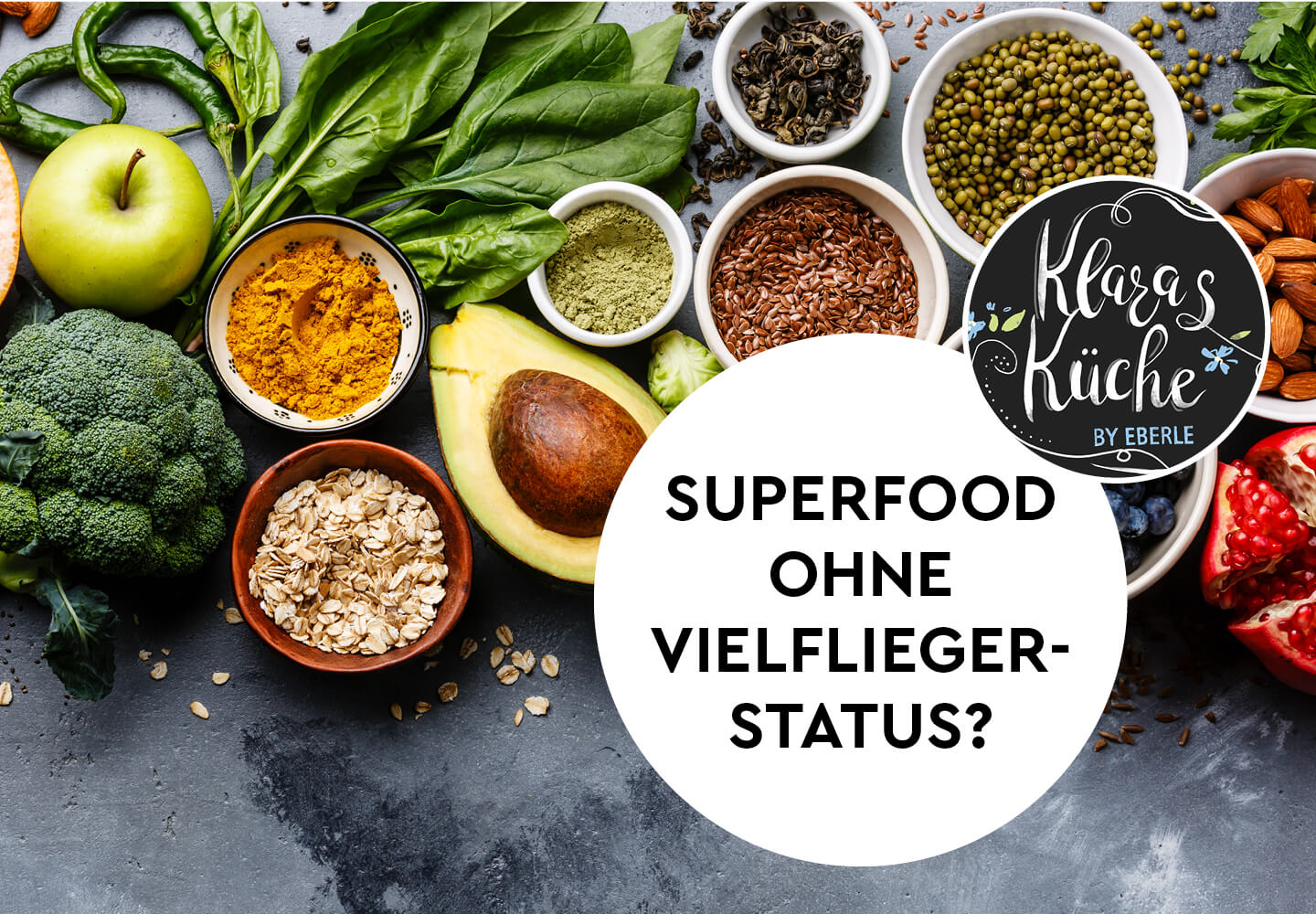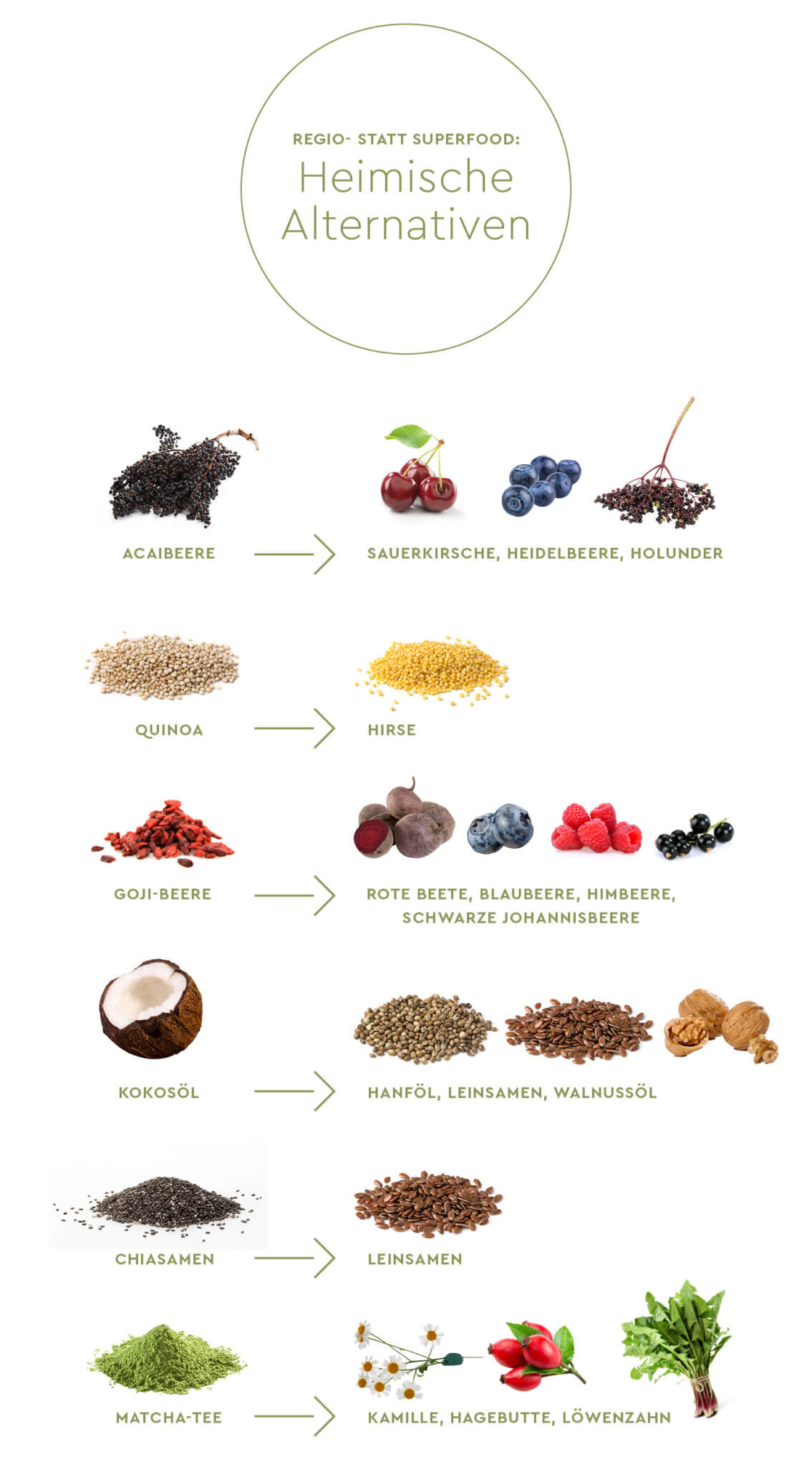

For years, superfoods such as acai berries & co. have been treated as superheroes among foods. However, the growth rate for some of the exotics considered extremely healthy has been declining since 20181. German manufacturers are now countering this with products from their home country and creating a new trend: regional “superfoods”. The promise of effectiveness remains: Domestic heroes such as blueberries, millet and camomile are in no way inferior in nutritional content to the super foods that have traveled far and wide. They are better for the climate because long transportation routes are eliminated. It also strengthens the image of the homeland. And that goes down doubly well with the end consumer.
Superfoods such as goji berries, quinoa and wheatgrass have become an integral part of muesli, Buddha bowls and smoothies. For years, superfoods have not only been enhancing our menus, but also our vitamin budgets. They are the mirror for our increased desire for a healthier lifestyle. With the success story of exotic foods, it quickly became clear that mass imports from overseas are not so easy to reconcile with the demand for a healthy and sustainable lifestyle. The negative consequences for the climate as a result of this health selfishness are well known. A major conflict of conscience for enlightened consumers.


As unusual as the name of the goji berry may sound, very few people know that it also grows here. It is therefore completely unnecessary to import the fiery red berry from China or Mongolia. In Asia, the goji berry has been used as a remedy for around 5000 years. Here in Germany, the popular trend berry is simply called common buckthorn, is grown in Demeter quality in southern Germany and is very popular in muesli.


One solution for healthy sustainability is regional superfood. It’s a good thing that we have been growing sour cherries, millet and rose hips in Germany for centuries. From a nutritional point of view, they are just as packed with vitamins and nutrients as their distant relatives. Our sour cherry contains even more antioxidants than, for example, the acai berry from South America – and is significantly cheaper in comparison. Another advantage of regional food: We get them fresh and not just dried. This also allows us to enjoy greater variety in preparation. And sour cherries are not the only local fruit that can easily compete with foreign superfoods:


Doing without was the old creed when it came to food in favor of climate protection. As a result, hardliners have even preferred to do without some fruit or vegetables altogether. A lot has happened since then: With the return to regionality, sustainability has evolved from being a duty to a positive attitude towards life and has reached a feel-good level: authentic and enjoyment-oriented. Well-known fruits, grains and seeds are experiencing a revival and undergoing an image change. Old vegetable and fruit varieties become the new local heroes.
Local and healthy: Sustainability 2.0, as it is called by the Zukunftsinstitut Hildesheim, not only strengthens regional value chains and awareness of local products, but is also an effective long-term method of protecting the climate – and makes us as consumers a little proud of our homeland, doesn’t it?
1: Will, Birgit: Exoticism is followed by home, in: Lebensmittel Zeitung. Issue 19 from 10.05.2019, p. 34.